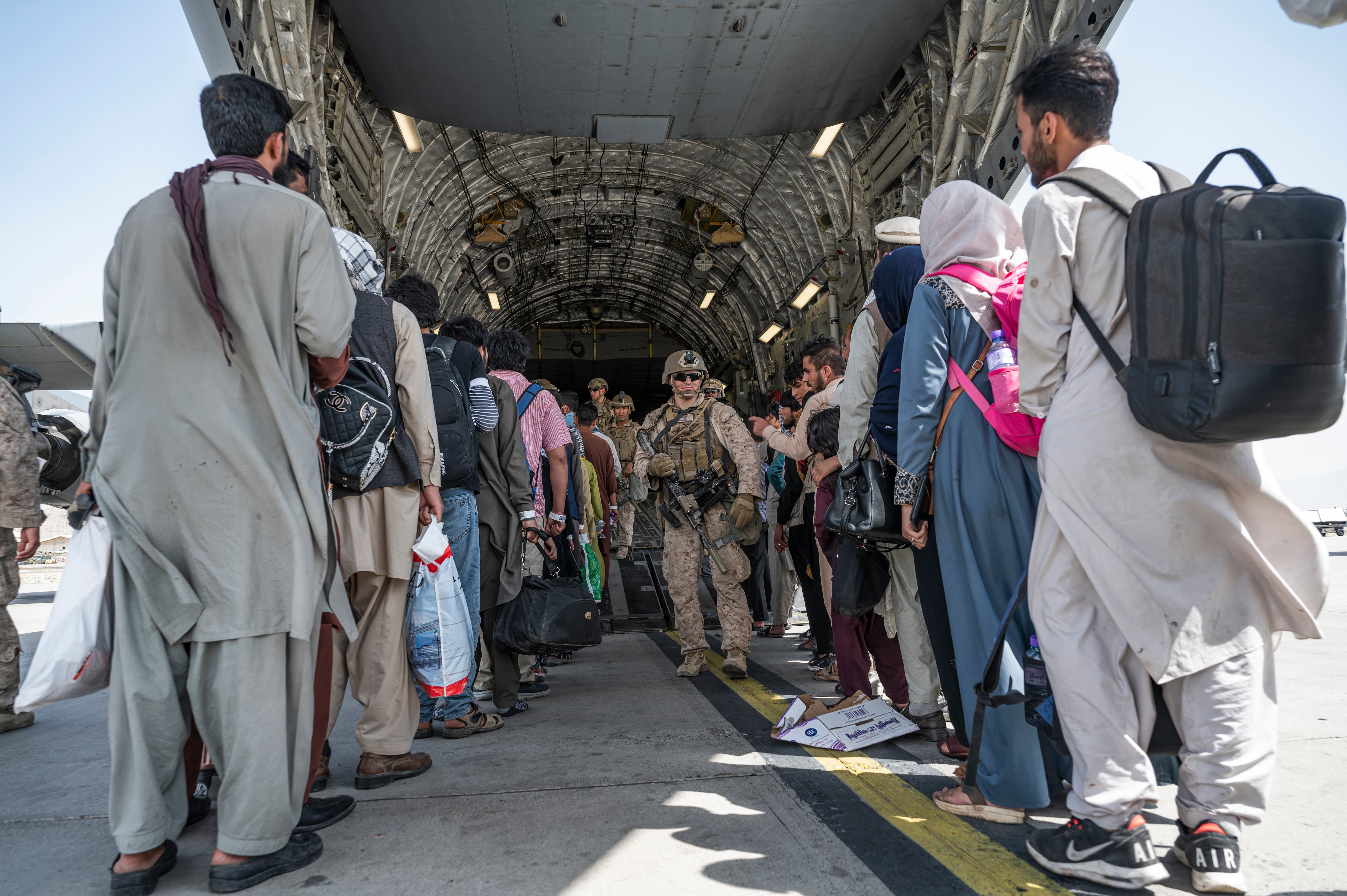Getting safely out of Afghanistan has been the focus for tens of thousands of refugees in recent days.
The next challenge? Figuring out where these refugees can restart their lives.
On Wednesday, President Joe Biden vowed that the United States will “do our part” in working with refugee organizations to resettle the massive wave of Afghan citizens leaving that country to avoid Taliban rule, either in the U.S. or in other allied countries.
A senior administration official said those efforts may include allowing some Afghan evacuees without complete visa paperwork to receive temporary immigrant status, allowing them to more quickly move to the U.S. mainland.
But White House staff are emphasizing that despite rhetoric from anti-immigration opponents, no individuals will be brought to the U.S. without first undergoing a thorough background check.
“That process involves biometric and biographic security screenings conducted by our intelligence, law enforcement, and counterterrorism professionals who are working quite literally around the clock to vet all of these Afghans before they’re allowed into the United States,” the official said.
RELATED

As of Wednesday morning, nearly 88,000 individuals had been evacuated from Afghanistan by U.S. forces since the end of July. White House Press Secretary Jen Psaki said the effort is “on track to be the largest airlift in U.S. history.”
But tens of thousands more are still awaiting escape from Kabul, Afghanistan, even as Taliban fighters have begun restricting movement around the city’s main airport in recent days. Biden has said he expects the evacuation effort to finish by the end of August, and for all U.S. troops to depart the country by then.
The evacuees fall into three broad groups: U.S. citizens and green-card holders; Afghans connected to the Special Immigrant Visa program or other fast-track immigration categories; and political refugees.
For now, all of the evacuees are being transported to “transit hubs” in third-party countries within Europe and Asia. All of the individuals are undergoing basic background checks and medical testing, to include COVID-19 screenings.
After that, U.S. citizens and green-card holders are allowed transport to their stateside homes.
Individuals in the Special Immigrant Visa program — the focus of many veterans since it includes Afghans who worked as translators or helped U.S. military forces in other ways — will continue to await processing by State Department officials.
The slow pace of that work in recent years has been a consistent complaint from outside advocates, and a focus of congressional lawmakers in recent months. They’ve urged administration officials to drop paperwork roadblocks to more quickly move and resettle those individuals, in recognition of sacrifices on behalf of the United States.
The group of political refugees faces the least certain path forward.
Assuming they pass the background checks, most are expected to be transported to U.S. military bases for additional screenings. That may include vaccinations against COVID-19, although specific details of how that will work have not been announced.
White House officials said that all eligible individuals would be connected to refugee resettlement organizations to determine their final destination.
RELATED

For some, that may be the United States. State Department staff are looking into special “parole status” for Afghans, based on humanitarian needs, the senior administration official said.
Others could be flown overseas again.
Leaders from Canada, France, Germany, Italy, Japan and the United Kingdom met with Biden on Tuesday to discuss the ongoing crisis in Afghanistan. Biden said each country agreed they share “a mutual obligation to support refugees and evacuees currently fleeing Afghanistan.”
In addition, State Department officials said they have received “generous offers” from countries such as Albania, Colombia, Costa Rica, Chile, Kosovo, North Macedonia, Mexico, Poland, Qatar, Rwanda, Ukraine and Uganda to help with “relocation efforts for at-risk Afghans.”
That work could still take months or years to complete. The evacuation effort, however, is scheduled to stop in just six more days.
Leo covers Congress, Veterans Affairs and the White House for Military Times. He has covered Washington, D.C. since 2004, focusing on military personnel and veterans policies. His work has earned numerous honors, including a 2009 Polk award, a 2010 National Headliner Award, the IAVA Leadership in Journalism award and the VFW News Media award.





